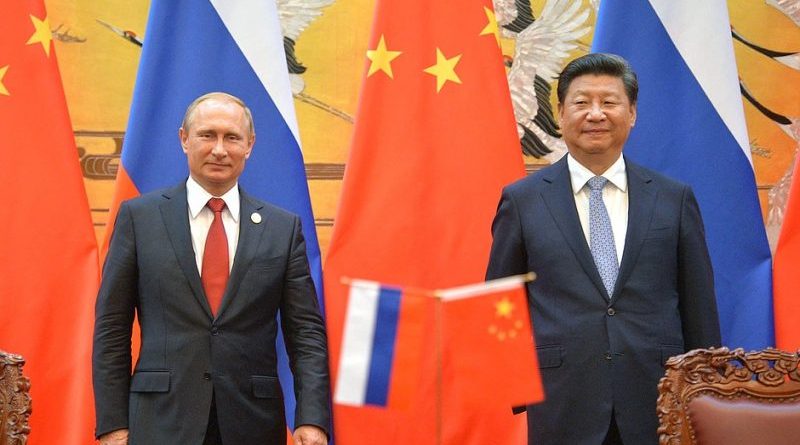Joseph Nye: Why Soft Power Matters in Hard Power World
This interview was conducted by the Fletcher Security Review at the first Fletcher-MGIMO Conference on U.S.-Russia Relations.
Fletcher Security Review: At a time of hard power, when militaristic and belligerent forces seem to be on the rise, how important is soft power?
Joseph Nye: The best answer to that is given by Secretary of Defense James Mattis, who was a general, when he said to the Congress, “If you cut back on soft power, you’re going to have to buy me more bullets.” I think that’s an illustration that soft power doesn’t solve all problems, but it does help you preserve (stability? Peace? Interests?) on carrots and sticks; if you also have traction.
FSR: Perhaps one of the best examples of soft power has been the ‘American Dream’. Would you say that it’s fading away, particularly in the changing political climate, or has the American Dream always been strong?
JN: Right now there is a period of certain political sourness. There is a discontent that was clear in the 2016 Presidential Election, especially on the part of some people who felt they were beginning to worry about being able to participate in the American Dream. But it is worth noticing that we have gone through this before. We have gone through cycles of optimism and pessimism. We have gone through cycles in terms of attractiveness of soft power. I still think we will recover from the current predicament.
FSR: From the United States standpoint, other good examples of American soft power have been things like Hollywood, Silicon Valley, Madison Avenue – places that are not just zip code areas but the fount and birthplace of new ideas and innovations. How can governments aspire to create such areas, because ironically one would argue that soft power can’t be created, it’s organic, isn’t it?
JN: Well soft power grows out of a country’s cultures and its values as well as its policies. Policies are only a part of that; that means the government’s role is sometimes to help invent soft power. In the case of the Vietnam War for example, the American government’s policies undercut its soft power. But the civil society as you put it – everything from Hollywood, to our universities, to the Gates Foundation – produces a great deal of soft power, and that gives the United States a base to work from. I often cite the example that in Vietnam when the government policies were very unpopular, people were demonstrating in the streets against the United States. They sang Martin Lurther King’s – We Shall Overcome, rather than the Communist Internationale. That’s an example of how something that grew out of our civil society was more important than the policies of the government.
FSR: Since the advent of you coining the phrase, we have seen many examples of how important soft power is. Despite this, it hasn’t really percolated through to all aspects of international affairs. We still see countries building up nuclear arsenals in what appear to be increasingly tense times, with growing geopolitical standoffs. Where is soft power unable to seep through to governments, military leaderships and other areas of the bureaucratic model?
JN: Well I think to be realistic, soft power is never going to replace hard power. It’s a question of being smart in the way you combine hard and soft power, so that one doesn’t undercut the other. For example, the American invasion of Iraq was a case of where our use of hard power undercut our soft power. I don’t expect soft power to replace hard power, but I do think if we are more adept in our use of soft power, we can observe what Secretary Mattis said: “You can economize on carrots and sticks, if you’re attractive.”
FSR: In the case of China and Russia, we see a lot of build-up in economic and military hard power, but is there enough that they are doing in terms of soft power capability? China has Confucius Institutes (great example of Chinese soft power), but are you going to see a ‘Marry me for Chinese Citizenship movement’ anytime soon, the way we saw with a ‘Marry me for a Green Card movement’? Is there a Chinese Dream, the same way there is an American Dream?
JN: Well China and Russia do have a problem, they’re less open to immigration and as a result the ‘Chinese Dream’ and the ‘Russian Dream’ are less available to others than the American Dream. But it is interesting that both China under Xi Jinping and Russia under Vladimir Putin have referred to soft power and their need to use soft power. At the same time if you look at the ‘Soft Power 30’ which is an index published by Portland, a consultancy in London – I think they rank Russia somewhere around 27 and probably China at 25. The United States usually comes out in the top three.
FSR: On a final note, what are your top three countries in terms of soft power?
JN: In soft power, this year, the Portland index put France as number one and Great Britain as number two. Last year the United States was number one, and the year before that Britain was number one. I think those three countries have generally done well, but by and large, a dozen or so countries are within a very close number of points of each other in this ranking.
FSR: Professor Nye, thank you very much for taking the time to speak with us and share your thoughts.

